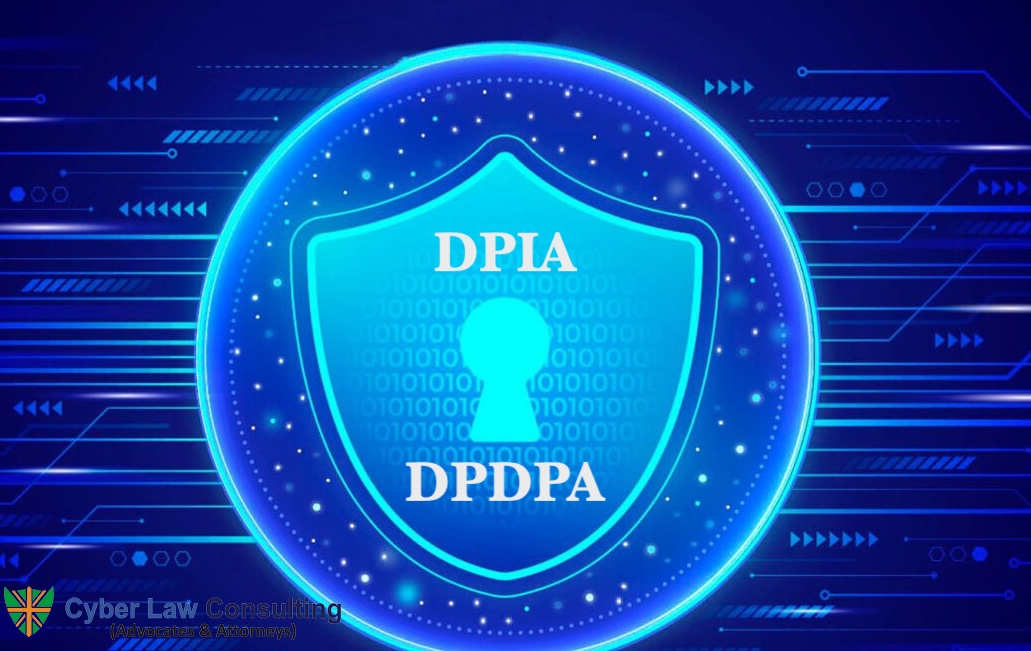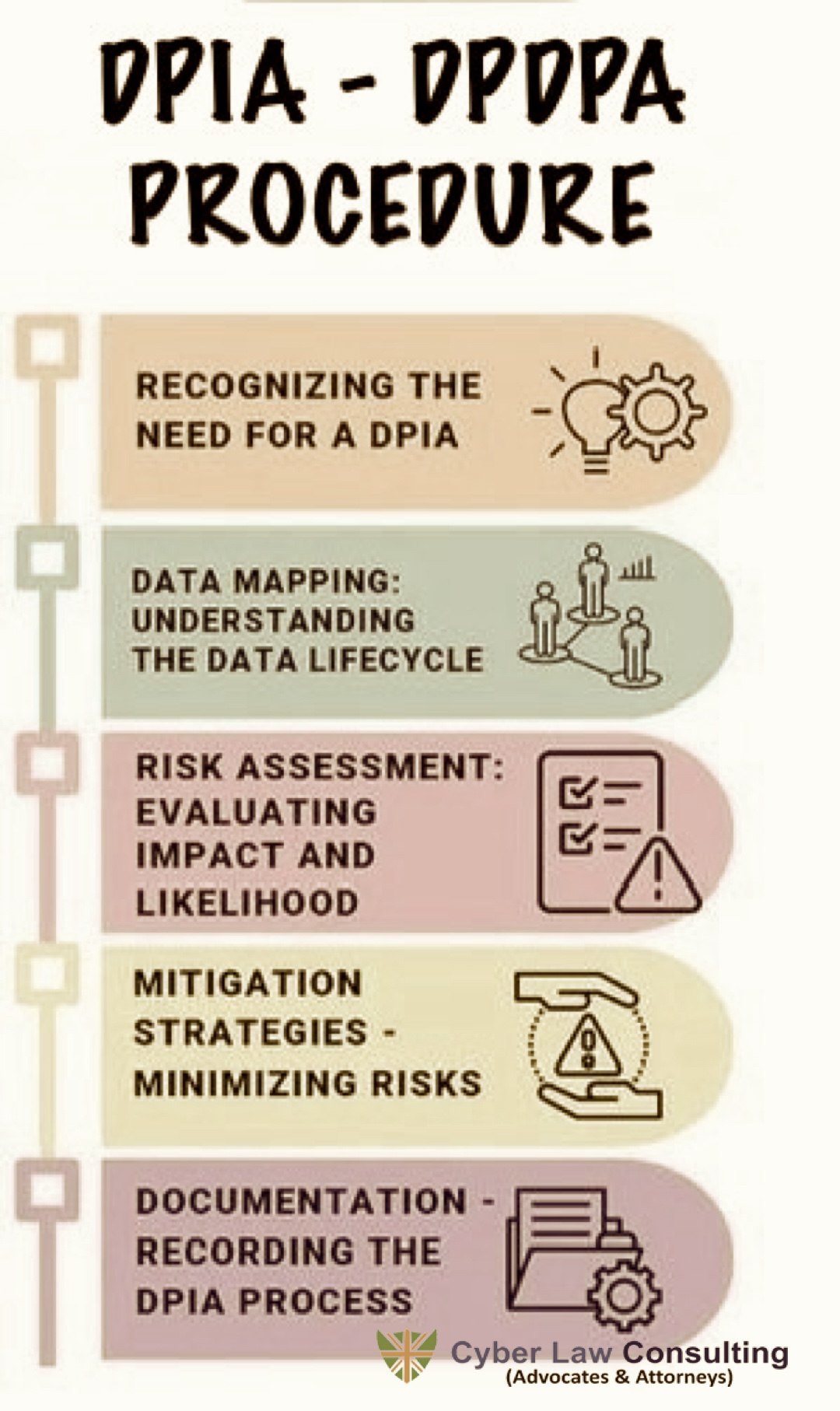SHARE :





Data Protection Impact Assessment (DPIA) Guidance Blog
Introduction
The Digital Personal Data Protection Act, 2023 (DPDPA) introduces a comprehensive framework for the protection of personal data in India. A key element of the DPDPA is the requirement for Significant Data Fiduciaries (SDFs) to conduct Data Protection Impact Assessments (DPIAs). This document provides guidance on DPIAs under the DPDPA and the associated DPDP Rules 2025. It is intended for use by privacy lawyers, Governance, Risk, and Compliance (GRC) professionals, and other stakeholders involved in data processing activities.A DPIA empowers organizations to anticipate and address risks associated with personal data processing. By identifying vulnerabilities before they manifest as breaches or violations, organizations not only safeguard individuals’ data but also protect their reputation and operational integrity. This is particularly critical for Significant Data Fiduciaries (SDFs), whose activities can have far-reaching implications on national security, democracy, and public order.
What is a DPIA as per DPDPA?
A DPIA is a systematic process for identifying, assessing, and mitigating the data protection risks of a processing activity. DPIAs help organizations to:
- Ensuring compliance with the DPDPA: It acts as a safeguard, ensuring that organizations meet the legal requirements set forth in the Act.
- Identifying and managing risks: DPIAs allow organizations to proactively spot vulnerabilities in their data-handling processes.
- Fostering a culture of "data protection by design": By embedding privacy considerations into every stage of a project, organizations create systems that respect and protect personal data.
- Increasing transparency and accountability: Conducting a DPIA demonstrates an organization’s commitment to ethical data practices.
- Building stakeholder trust: By showcasing robust data protection mechanisms, organizations strengthen relationships with customers, partners, and regulators
For example, an e-commerce platform planning to implement AI-powered personalized recommendations would conduct a DPIA to evaluate potential risks related to customer data.
This ensures that measures like consent mechanisms and encryption are in place before the system goes live.
When is a DPIA under DPDPA Required?
DPIAs are mandatory for SDFs (Significant Data Fiduciaries). The Central Government will notify specific Data Fiduciaries or classes of Data Fiduciaries as SDFs based on factors such as:
- Volume and sensitivity of personal data processed: High-volume or sensitive data handling requires a DPIA.
- Risk to the rights of Data Principals: Activities that pose a high risk to individuals' privacy or freedoms mandate a DPIA.
- Potential impact on the sovereignty and integrity of India: Data processing affecting national security or geopolitical stability necessitates DPIA compliance.
- Risk to electoral democracy: Processing data impacting democratic processes mandates DPIA adherence.
- Security of the State: Activities jeopardizing state security must undergo DPIA evaluation.
- Public Order: Data processing with societal impact requires DPIA scrutiny.
For instance, a social media platform handling sensitive political data during an election would undoubtedly
be classified as an SDF and mandated to perform a DPIA, a ecommerce company, a payments or fintech company, a bank or insurance company all are likely to be be SDF's.
DPIA Process
-
Identifying whether a DPIA is Required:
- Determine if the organization is classified as an SDF by the Central Government.
- If not classified as an SDF, consider whether a DPIA would be beneficial given the nature of the processing activity and the associated risks.
- Refer to the list of processing operations likely to result in high risk provided by the authorities in the European Union (EU) as a reference, which includes systematic monitoring of publicly accessible areas on a large scale and evaluation or scoring involving sensitive personal data.
-
Defining the Characteristics of the Project:
- Describe the Processing Activity: Includes the purpose of the processing, the types of personal data being processed, the categories of Data Principals involved, and the data flows involved.
- Necessity and Proportionality: Assess whether the processing is necessary for the stated purpose and whether the data being collected is proportionate to that purpose.
- Legal Basis for Processing: Ensure that the processing is lawful and has a valid legal basis under the DPDPA, such as consent or legitimate interests.
-
Identifying Data Protection and Related Risks:
- Brainstorm Potential Risks: After preparing your PII register if getting considered, consider ways in which the processing activity could impact the rights and freedoms of Data Principals. on a special note have you thought about the "Right to Nominate" it aint there in GDPR, your would need a special treatment
Develop a Data Protection Risk Register:
| Risk |
Likelihood |
Impact |
Severity |
Mitigation Strategy |
| Unauthorized access to data |
High |
High |
Critical |
Implement strong access controls, encryption, and regular security audits. |
| Accidental disclosure of data |
Medium |
Medium |
Medium |
Implement data loss prevention measures, staff training, and clear data handling policies. |
| Use of data for unintended purposes |
Low |
High |
High |
Obtain explicit consent for specific purposes, implement data governance framework, and conduct regular privacy reviews. |
- Identifying and Evaluating Data Protection Solutions: Evaluate risks and choose mitigation strategies.
- Signing off and Recording DPIA Outcomes: Prepare a DPIA report and obtain sign-off from relevant stakeholders.
- Integrating DPIA Outcomes into the Project Plan: Ensure that mitigation measures are implemented, monitored, and reviewed regularly.
Consulting with the Data Protection Board (DPB)
In cases where the DPIA identifies residual high risks that cannot be mitigated, the DPB must be consulted before proceeding with the processing activity. is a critical step when a DPIA identifies residual high risks that cannot be mitigated effectively. Residual risks are those that remain even after implementing technical, organizational, or procedural safeguards. Before proceeding with the data processing activity, organizations are legally obligated to seek the DPB’s guidance in such cases.
The DPB acts as a regulatory oversight body to ensure that these high-risk activities do not jeopardize the rights of Data Principals, national security, or public interests. This consultation process not only helps organizations align their practices with compliance standards but also offers tailored recommendations for addressing risks effectively.
The DPB may:
• Provide additional risk mitigation strategies.
• Specify conditions under which the data processing can proceed.
• Prohibit the processing activity if the risks are deemed unacceptable.
Proactively engaging with the DPB also demonstrates an organization’s commitment to transparency and accountability. Even in cases where consultation with the DPB is not mandatory, maintaining detailed DPIA documentation ensures readiness for audits or future inquiries. This step solidifies trust with regulators and reinforces the organization’s reputation as a responsible data fiduciary.
Publishing the DPIA
Publishing the DPIA, or a summary of its key findings, can promote transparency and accountability, enhance stakeholder trust, and demonstrate a commitment to data protection.A DPIA empowers organizations to anticipate and address risks associated with personal data processing. By identifying vulnerabilities before they manifest as breaches or violations, organizations not only safeguard individuals’ data but also protect their reputation and operational integrity. This is particularly critical for Significant Data Fiduciaries (SDFs), whose activities can have far-reaching implications on national security, democracy, and public order.
Final Advise: Embrace the DPIA Mindset
The Digital Personal Data Protection Act, 2023, has ushered in a new era of accountability in how organizations handle personal data. DPIAs, as mandated by the DPDPA, are not merely bureaucratic formalities but opportunities to build trust, enhance operational resilience, and align with the evolving global privacy landscape.
As an organization, embracing DPIAs means embracing a commitment to respect individuals’ rights, protect sensitive data, and operate with transparency. It signals that your organization values privacy not just as a legal requirement but as a core ethical principle. By investing in a robust DPIA process, you are safeguarding not only the rights of Data Principals but also the long-term success and reputation of your organization in an increasingly privacy-conscious world.
The message is clear: If you want to thrive in the age of data protection, a well-executed DPIA is your ally, your shield, and your roadmap to success and getting it done from a techno legal law firm or recertifying your existing DPIA covers your major legal risk !.



